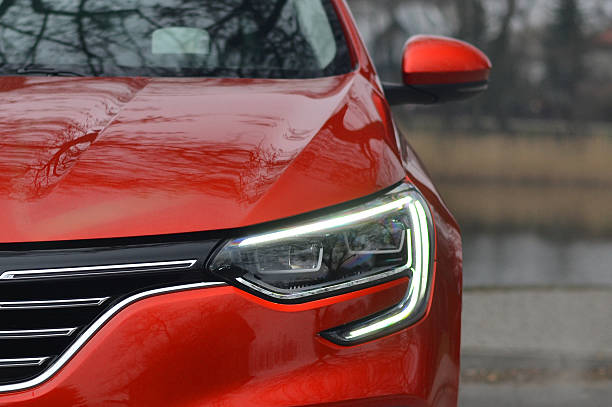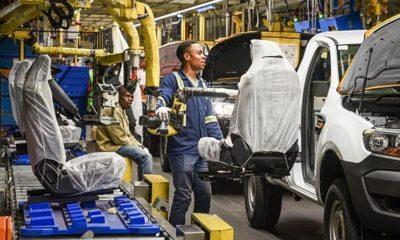Business
Why Are Car Brands Leaving South Africa? A Look at the Market Trends and Investments

Over the past 15 years, several renowned car brands, including Cadillac, Datsun, Chevrolet, and Chrysler, have exited the South African market. This shift speaks volumes about the unique dynamics of the South African economy and its automotive industry, as well as the evolving preferences of local car buyers.
At the same time, other brands like Toyota, Volkswagen, Ford, and even new entrants from China are making substantial investments in South Africa, seeing potential where others have struggled. Let’s take a closer look at why certain car brands have left and what makes the local market so complex yet promising for those who remain.
A Challenging Market for Luxury and Niche Brands
South Africa’s sluggish economic growth and challenging business environment have led to tough conditions for luxury brands like Cadillac, Chrysler, and Saab. Targeting wealthier buyers, these brands faced fierce competition from well-established players such as BMW and Mercedes-Benz. For instance, Cadillac attempted to position itself as an affordable alternative to German luxury sedans but ultimately fell short due to a strong consumer bias toward familiar brands.
Another example is Saab, which exited South Africa in 2010 after facing stiff competition in the luxury market. With its niche appeal and front-wheel-drive configurations, Saab struggled to resonate with South African consumers who preferred rear-wheel-drive options from BMW and Mercedes-Benz.
Mass-Market Brands Unable to Compete
Even well-known mass-market brands faced challenges. Chevrolet, a longstanding player in South Africa, ended its operations in 2018 as parent company General Motors (GM) restructured globally, prioritizing the U.S. and China markets. Although the brand was initially well-received, its shift to mass-market vehicles did not sit well with South African consumers, who preferred established players like Toyota and Volkswagen. Similarly, Daihatsu exited in 2015, mirroring its withdrawal from other right-hand-drive markets as it redirected its focus to Asia.
Datsun’s exit in 2022 marked the end of another attempt to attract budget-conscious South African buyers. Despite an initial positive response to the Datsun Go, the brand ultimately withdrew, following similar moves in Russia, Indonesia, and India.
The Rise of Local Investment and Manufacturing
Despite these exits, South Africa’s automotive industry remains a key economic sector, contributing 4.3% of the nation’s GDP. Some major global players have doubled down on their investments, with brands like Toyota, Ford, and BMW not only retaining their foothold but also expanding their manufacturing operations locally.
For instance:
- BMW has committed to manufacturing the next-generation BMW X3 exclusively at its Rosslyn plant in Pretoria.
- Ford invested a notable R15.8 billion in its Pretoria operations to produce vehicles like the Ford Ranger.
- Toyota allocated R6.1 billion to enhance production of the Hilux and Fortuner models in Durban.
- Volkswagen set aside R4.5 billion to improve its Uitenhage facility and introduce new models.
The entry of Beijing Automobile International Corporation (BAIC), which invested R11 billion in a new manufacturing plant, further highlights the confidence some automakers have in South Africa’s potential.
Dominance of Affordable and Local Brands
The brands that thrive in South Africa are those offering affordable, durable vehicles that resonate with the local market’s needs. Toyota, Volkswagen, and Ford lead in sales, thanks to models like the Toyota Hilux, Ford Ranger, and Toyota Corolla Cross, which have earned high consumer loyalty due to their reliability and affordability.
Chinese brands like Chery, GWM, and Haval are also gaining traction in South Africa, focusing on budget-friendly options that appeal to cost-conscious consumers. As of September 2024, South African buyers have 27 Chinese car models to choose from, with Chinese brands expected to capture around 20% of the new car market by the end of the year. This trend underscores the growing demand for competitively priced alternatives, which Chinese manufacturers have successfully capitalized on.
Looking Forward
The South African automotive industry presents a unique landscape where only the adaptable thrive. High-quality, affordable vehicles have become a priority for consumers, while locally manufactured models enjoy strong support. For international brands, entering or re-entering the market may require a strategy focused on affordability, reliability, and a deep understanding of local preferences.
As Chinese brands continue to grow in popularity and established names reinforce their presence through significant local investments, the future of South Africa’s automotive market looks increasingly competitive. For new brands aiming to enter, success will likely hinge on delivering what South African consumers want: affordable, durable, and dependable cars.
The South African car market is a blend of challenges and opportunities. While some car brands have chosen to leave, others see the market’s potential and continue to invest heavily. The brands that succeed will be those that understand and meet the demands of South African motorists, balancing affordability with quality to create lasting consumer loyalty.

















